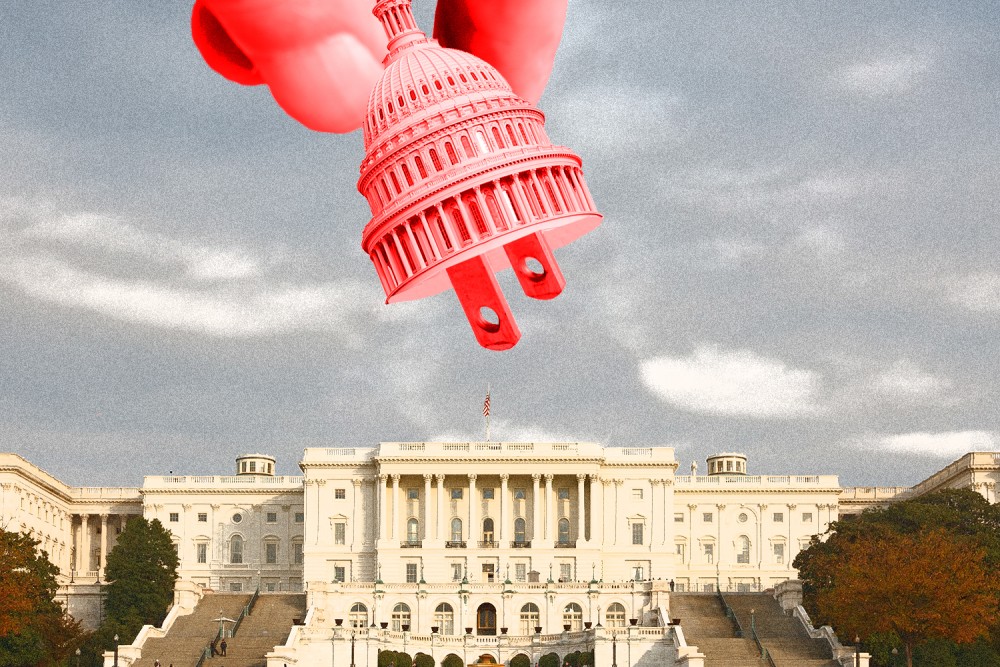Worse than doing nothing
Congressional leaders have sat silent as Trump runs roughshod over democratic norms. But they readily answered the call to cut Medicaid.

Century illustration (Source images: Getty)
We’ve seen do-nothing Congresses before, but this is next level. Despite GOP control of both houses, this Congress has passed no major bills. It has kept silent as the White House runs roughshod over the separation of powers. It’s not clear what some members are doing with their time when they aren’t performing their fealty to President Trump, fundraising for the next election, or refusing to show up to a constituent town hall.
That said, there is one area where they’ve really put in the work. In May, House leaders whipped votes to squeeze through a budget proposal that takes billions from the poor, gives billions to the rich, and adds trillions to the national debt. (At press time, the Senate was still working on its version.)
Read our latest issue or browse back issues.
We’ve seen awful budget bills before, but not like this one. Big cuts to both food assistance and Medicaid will do deep harm to millions of lower-income Americans. These cuts will also save a lot of money—or rather they would, were it not for the even bigger tax breaks for people earning more than $500,000 a year. Other provisions will end climate programs, quadruple the budget for detaining migrants, and more.
Medicaid cuts will hit hardest in rural areas, where nearly half the children rely on the program and so do struggling hospitals. Rural Americans tend to vote Republican. So why is a do-nothing GOP Congress working so hard to do, of all things, this?
Clearly some members are motivated by small-government ideology, a worldview in which “balance the budget” is mostly just a euphemism for cutting social services. Indeed, the drama around the House vote was due primarily to holdouts who wanted even more cuts to Medicaid, and a parallel conflict has since emerged on the Senate side.
But the larger issue is who the Republican members serve. We’re long past the problem of legislators who answer only to their supporters, ignoring their other constituents. Today most of them serve Trump alone. The congressional majority has relinquished its constitutional role in favor of being an extension of the president and his will. And what the president wants is his “big, beautiful bill.”
In fairness, this uncritical support for Trump is the main thing many GOP voters demand of their representatives these days. So members who want to avoid a primary challenge—or to fend off threats of violence—have a strong incentive to fall in line.
But Congress doesn’t exist simply to find out what most of the people want and then do it. Its members aren’t mere messengers; that isn’t what legislating is, not in a republic like ours. Certainly legislators draw from the values and views they share with the people who voted them in. But Americans have long expected them to draw as well from their own judgment, experience, and wisdom—not just their poll data. Evading this responsibility is never good for civic health. When the poll data indicates support for the president even when he breaks the law, such evasion is outright dangerous.
We are living through a constitutional crisis, and it’s not clear how it will end. But there is one entity that could quickly, decisively put a stop to this administration’s abuses of power, and that’s Congress. Doing so will require members to look beyond their immediate incentives for deeper sources of motivation—to locate whatever’s left of their conscience, their patriotism, their sense of vocation, and their courage.






